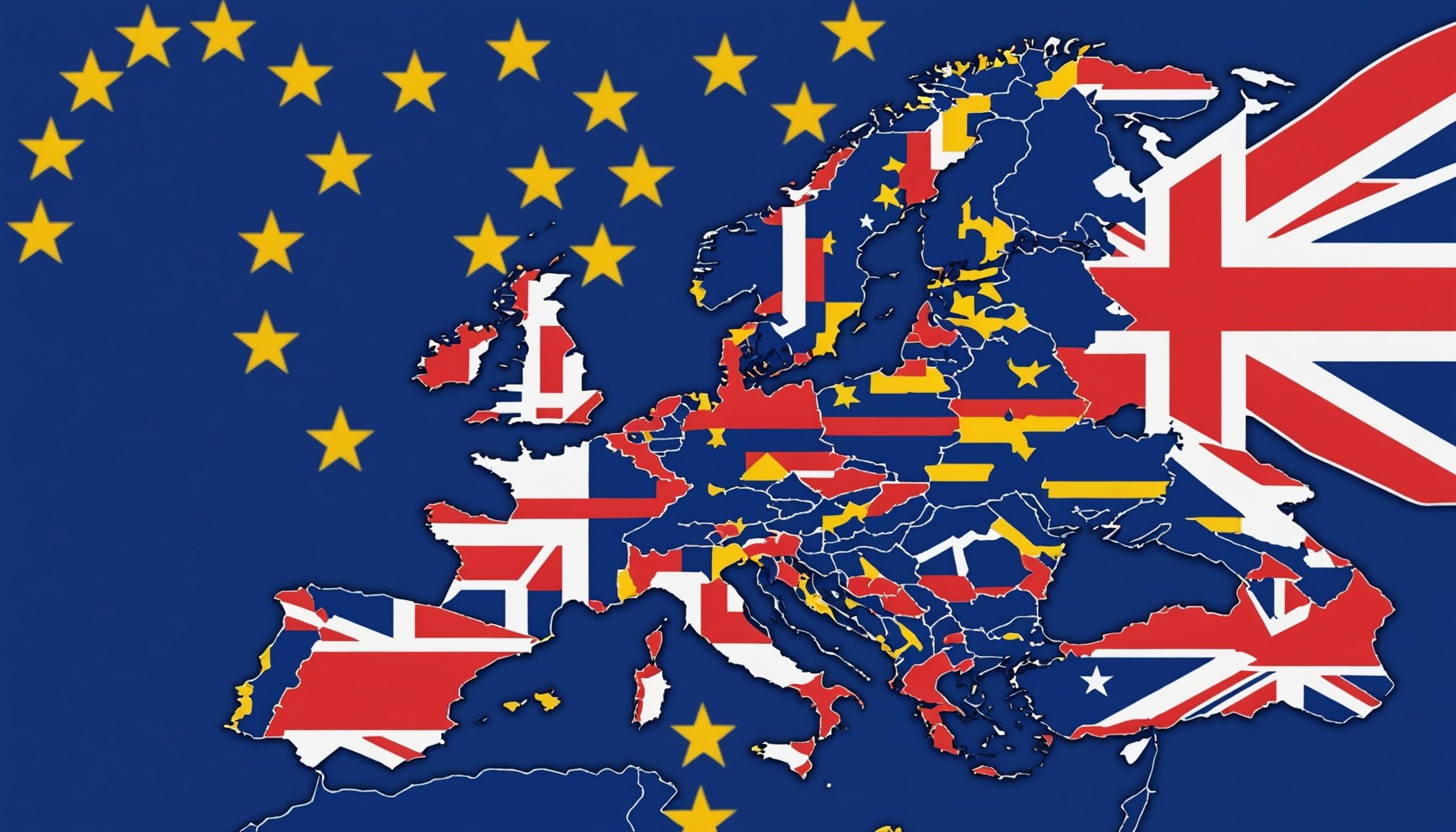Overview of EU GDPR and Post-Brexit Implications
Navigating the GDPR Overview is crucial for any organisation handling personal data in or from the EU. It sets universal standards to protect individuals’ data privacy. Key principles include data minimisation, accuracy, and accountability. Post-Brexit, understanding Post-Brexit Regulations has become even more essential for UK companies targeting EU markets. Since the UK is no longer an EU member, UK-specific regulations now apply alongside the GDPR.
Key Changes for UK Companies
Post-Brexit, UK businesses must comply with both UK and EU Post-Brexit Regulations if they operate within the EU market. The UK’s Data Protection Act 2018 mirrors GDPR requirements but allows for some variations. UK Companies Compliance involves ensuring that these businesses understand and implement both sets of regulations, focusing on lawful processing, data subject rights, and international data transfers.
Topic to read : Mastering the Financial Services and Markets Act 2000: Key Legal Obligations for UK Enterprises
Importance of EU Market Regulations
For UK companies, grasping Post-Brexit Regulations is indispensable as it affects market access and customer trust. Non-compliance can lead to penalties and damages to reputation, making it vital to stay informed and ensure thorough UK Companies Compliance. Engaging in continued learning and consultation with data protection experts can help secure compliance efficiently.
Potential Pitfalls in GDPR Compliance
Navigating the complexities of GDPR compliance can present various compliance pitfalls for UK companies. Common mistakes include inadequate data mapping and failure to maintain accurate records, both leading to risks associated with non-compliance. Such oversights can result in significant fines, legal actions, and damage to corporate reputations. Beyond financial consequences, a data breach can erode customer trust, impacting long-term business sustainability.
Topic to read : Essential Guide to 2018 Data Protection Act Compliance for Every UK Business
Understanding risk management is vital in this context. Developing a proactive strategy involves regularly conducting data audits and engaging Data Protection Officers (DPOs) to oversee compliance. By consistently reviewing data protection practices, organisations can preempt issues before they manifest into breaches.
To enhance compliance measures, companies are encouraged to implement robust data security protocols. These include establishing comprehensive training programs to ensure employee awareness of GDPR’s significance. Enforcing strict access controls and encryption methods also plays a critical role in safeguarding data.
In conclusion, avoiding common compliance pitfalls requires an integrated approach to both technology and personnel. By investing in resources that promote a culture of vigilance and readiness, UK companies can better protect themselves against the challenges posed by GDPR requirements.
Compliance Steps for UK Companies
Ensuring GDPR compliance requires UK companies to undertake several critical steps to meet data protection requirements. Initially, organisations must appoint a Data Protection Officer (DPO), responsible for overseeing compliance and acting as a point of contact for data protection matters. This role is crucial in navigating complex regulations and ensuring robust data management strategies.
Conducting regular data audits is another essential step. Audits help identify what personal data is held, how it’s processed, and the associated risks. Following this, impact assessments should be conducted for high-risk data processes. This proactive approach enables companies to evaluate potential impacts on data privacy and take preventive measures accordingly.
Additionally, companies must establish clear procedures for handling data breaches. Effective response plans, incorporating immediate notification strategies and remedial actions, are vital in mitigating risks and safeguarding company reputation. Implementing these compliance steps ensures enhanced protection of personal data, fostering consumer trust and maintaining legal compliance. Importantly, companies are encouraged to provide thorough staff training on GDPR principles, ensuring all employees understand their roles and responsibilities in maintaining data security. Through these comprehensive strategies, UK companies can effectively manage their data protection obligations and navigate the complexities of GDPR compliance.
Best Practices for Data Handling
Ensuring robust data security and maintaining GDPR compliance requires UK companies to adopt top-notch data handling practices. Following GDPR guidelines is not only about legal compliance but also about fostering trust with customers and stakeholders. At the heart of these practices is the emphasis on data security and privacy.
Companies need to develop and implement essential policies that align with GDPR’s principles. Incorporating strong encryption, controlled access, and regular data backups is crucial. These measures guard against potential breaches and protect sensitive information.
Training is another critical area. All staff members should be well-versed in data protection practices to ensure the protection of personal data throughout its lifecycle. Regular training sessions and updates about GDPR guidelines help maintain a knowledgeable workforce.
Additionally, implementing a policy of transparency with data subjects is vital. Providing clear information on how data is collected, processed, and stored can enhance trust and ensure accountability.
By following these best practices, companies not only adhere to GDPR guidelines but also develop a resilient data protection framework. This holistic approach effectively balances legal obligations with trust-building initiatives, securing long-term business success.
Case Studies on GDPR Compliance
Exploring GDPR Case Studies offers insightful lessons and highlights compliance successes and challenges. Real-world examples of successful compliance provide actionable strategies for UK companies aiming to adhere to GDPR while operating in the EU market.
Successful Compliance Examples
Several UK firms exemplify successful GDPR application. They achieved this by prioritising transparency with data subjects, employing Data Protection Officers, and regular data audits. These organisations not only complied legally but also fostered customer trust, demonstrating how proactive measures can secure data integrity.
Common Challenges Faced
However, many companies encounter hurdles, particularly in data mapping and international transfers. Misunderstanding the scope of data processing or failing to maintain accurate records has tripped numerous businesses. Recognising these common compliance pitfalls is crucial to avoid similar errors.
Learning from Key GDPR Violations
Lessons from companies that breached GDPR revolve around inadequate risk assessments and lack of employee training. These incidents underscore that risk management and continual staff education are vital for maintaining compliance. By learning from these cases, UK companies can sidestep compliance breaches, sustaining both legal and customer trust.
FAQs on GDPR for UK Companies
Understanding GDPR requirements is crucial for UK companies operating in the EU. This section addresses some common GDPR FAQs to clarify misconceptions and guide businesses towards compliance.
Frequently Asked Questions
What is GDPR and why is it important for UK companies?
The General Data Protection Regulation (GDPR) establishes guidelines for collecting and processing personal information of individuals within the EU. For UK companies, adherence is vital post-Brexit due to dual compliance obligations with both EU and UK data laws.
How does GDPR affect UK businesses post-Brexit?
Post-Brexit, UK businesses must navigate both the UK’s Data Protection Act and GDPR when handling EU citizens’ data, complicating compliance strategies but ensuring seamless market operations.
Resources for Further Learning
To deepen understanding, numerous online resources provide detailed insights into GDPR. While external links aren’t provided here, companies should explore reputable platforms offering comprehensive compliance clarifications.
Where to Seek Professional Advice
It’s prudent for UK firms to seek guidance from professional bodies like the Information Commissioner’s Office (ICO), which offers support in interpreting GDPR laws and enhancing compliance measures effectively. Utilising expert advice ensures that businesses stay updated and accurately implement compliance clarifications.
Downloadable Resources and Checklists
To promote effective GDPR compliance among UK companies, having access to practical tools is essential. GDPR resources are invaluable for navigating complex regulations, providing clear guidance on the implementation of compliance steps. Accessible solutions such as compliance checklists and downloadable guides serve as vital aids in ensuring adherence to both GDPR and UK-specific rules.
These resources typically include a comprehensive list of data handling best practices, step-by-step instructions on conducting data audits, and templates for documentation required under GDPR. Regularly consulting these materials can streamline processes and reinforce the company’s commitment to data protection principles.
For effective UK companies compliance, it’s crucial to select resources that address specific industry requirements and operational challenges. Tailored checklists ensure that companies identify areas requiring attention, from data security protocols to the role of Data Protection Officers. Additionally, downloadable guides often feature case studies and scenarios, illustrating real-world applications and potential pitfalls to avoid.
By embracing these resources, UK businesses can foster a proactive approach, enhancing their understanding of GDPR while maintaining a strong compliance framework. Leveraging such tools not only supports legal obligations but also cultivates customer trust, ultimately contributing to sustainable success in the post-Brexit EU market.











